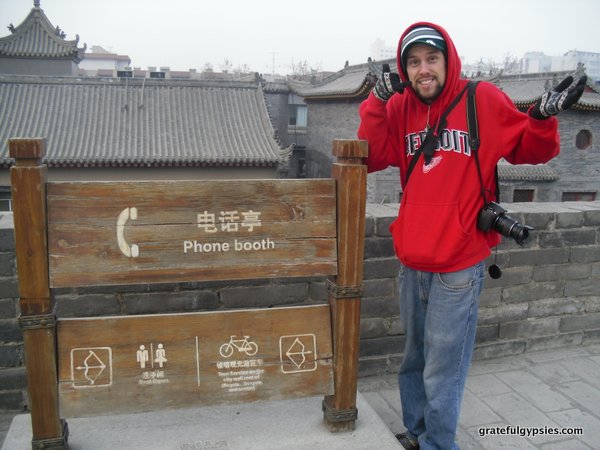What Are You Doing? in Chinese Posted by sasha on Dec 26, 2017 in Vocabulary
When teaching English to my Chinese students, I find that it’s always a bit difficult for them to switch between the simple present and the simple present continuous tenses in English. That is, the different between saying “I go” and “I am going.” Thankfully, this really isn’t so tough in Chinese. In this post we’re going to take a look at talking about ongoing actions in Chinese and give you plenty of examples to start using it. Basically, we’ll learn how to answer the question “What are you doing?” in Chinese.
Chinese Pronouns
Before we dive into the grammar, let’s take a moment to review the Chinese pronouns:
你
他
她
它
我们
你们
他们
nǐ
tā
tā
tā
wǒ men
nǐ men
tā men
you
he
she
it
we
you
they
For some more practice, you can also review this video on Chinese pronouns and the verb “to be”:
That’s another great thing about learning Chinese – you don’t have to worry about conjugating the verb “to be” like you do in English. It’s just 是 (shì) for everyone! We won’t be using that verb much in this post, but it’s important to know anyways!
How to Ask a Question
Here’s the basic formula for asking a question about ongoing actions:
Subject + 在/正在 + 做/干 + 什么?
Subject +zài/zhèng zài +zuò/gàn +shén me
What is/am/are subject doing?
It may seem a little confusing at first, but it really is quite simple. You can choose either 在 or 正在, and then you can choose either 做 or 干. For example, here are two different ways to ask “What are you doing?”:
你在做什么?
nǐ zài zuò shén me
你正在干什么?
nǐ zhèng zài gàn shén me
They both mean exactly the same thing, so you can choose one or the other, alternate between the two – whatever works for you! See if you can practice now. What are the two ways you could ask “What is she doing?” Just follow the example above but change the pronoun and you’ve got it! Now let’s look at answering this question.
How to Answer a Question
Answering these types of questions is even easier than asking them. Just follow this simple format:
Subject + 在/正在 + Verb + Object
Subject + zài/zhèng zài + Verb + Object
Once again, you can use 在 or 正在 in the answer. It doesn’t really matter, but typically you answer in the same format that the question was in. Here’s an example for you to see it in action:
我在学习中文
wǒ zài xué xí zhōng wén
I am studying Chinese.
Whoa! 你很棒! That means “You’re awesome!” and it’s true, because you’re learning Chinese with us. Isn’t it easier than you thought? Let’s learn some common activities that you might answer such a question with.
Daily Activities
Here’s a list of 20 daily activities that you should definitely memorize. Chances are one of these will be your answer to the question “What are you doing?”, as we spend most of our time doing these things!
工作
学习
开会
看电视
听音乐
做运动
玩游戏
上网
看书
打电话
骑自行车
跳舞
唱歌
做饭
看电影
洗衣服
买东西
做作业
睡觉
gōng zuò
xué xí
kāi huì
kàn diàn shì
tīng yīn yuè
zuò yùn dòng
wán yóu xì
shàng wǎng
kàn shū
dǎ diàn huà
qí zì xíng chē
tiào wǔ
chàng gē
zuò fàn
kàn diàn yǐng
xǐ yī fú
mǎi dōng xī
zuò zuo yè
shuì jiào
work
learn/study
have a meeting
watch TV
listen to music
do excercise
play games
surf the Internet
read a book
make a phone call
ride a bike
dance
sing
cook
watch a movie
wash clothes
shop/go shopping
do homework
sleep
Examples and Practice
Now let’s put this all together! Here are a few more examples for you to study and then a practice activity for you to try at home:
她在做什么?
tā zài zuò shén me
What is she doing?
她在听音乐
tā zài tīng yīn yuè
She is listening to music.
你们正在干什么?
nǐ men zhèng zài gàn shén me
What are you doing?
我们正在开会
wǒ men zhèng zài kāi huì
We are having a meeting.
他们在干什么?
tā men zài gàn shén me
What are they doing?
他们在吃饭
tā men zài chī fàn
They are eating.
Now it’s your turn! See if you can translate the following examples into Chinese for some practice:
What are you doing?
I’m doing homework.
What is he doing?
He is riding a bicycle.
What are they doing?
They are playing a game.
I’m sure you can do it! We’ve got plenty of other resources to help you learn Chinese, such as a free word of the day delivered right to your inbox. Learning a language is never easy, but with persistence and the right attitude you’ll definitely see results. Plus, now is the perfect time to make studying a language your New Year’s Resolution!

Build vocabulary, practice pronunciation, and more with Transparent Language Online. Available anytime, anywhere, on any device.







Leave a comment: